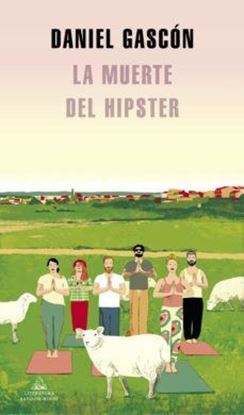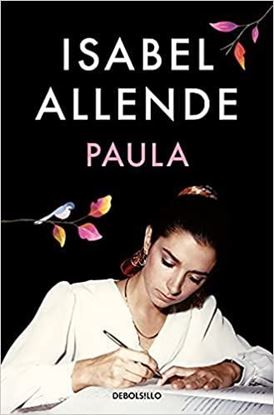

ISLA DECEPCION
Tras renunciar a un trabajo que odia, Marcela huye de su vida en Santiago de Chile para visitar a su padre en Punta Arenas, en la Patagonia. Allí descubre que Miguel, con quien tiene una relación compleja, mantiene escondido a un joven coreano que un grupo de pescadores ha rescatado en el mar. Aislado tras un muro de silencio y una historia traumática, Lee es un misterio por descifrar, un superviviente en el que ambos se vuelcan para evitar resolver sus propias diferencias.
Inspirada en casos reales de marineros orientales que ponen en peligro sus vidas saltando de los barcos-factoría que navegan por el estrecho de Magallanes, Isla Decepción cuenta la historia de tres prófugos que buscan un refugio para no rendirse. Abordando el estado de explotación actual de los mares y condiciones de trabajo impensadas en pleno siglo XXI, la novela cruza la frontera de lo real para arribar a una nueva orilla, una en la que la soledad, los errores y la desesperación todavía pueden convertirse en una aventura.
Escrita con un ritmo cinematográfico heredero del cine coreano, tan poética como violenta, Isla Decepción es la esperada primera novela de Paulina Flores, ganadora del Premio Roberto Bolaño, elegida por Granta como una de las mejores narradoras en español y cuyo primer libro, Qué vergüenza, ha sido unánimemente alabado por la crítica y traducido internacionalmente.
995
LA MUERTE DEL HIPSTER (OF2)
Regresa Enrique Notivol, el hipster, que debe hacer frente a los urbanitas que, hartos de la ciudad asolada por la Covid-19, pretenden invadir su tranquilo rincón de la España vacía.
Tras una ruptura con su novia, desencantado de la vida moderna y ansioso por encontrar la autenticidad y la comunión con la naturaleza, Enrique Notivol abandonó Madrid y se instaló en el pueblo de su tía en Teruel. Tenía grandes planes: huertos colaborativos, gallineros no heteropatriarcales y talleres de nuevas masculinidades. Contra todo pronóstico, llegó a ser alcalde y encontró el amor con Lourdes, la dueña del bar de la carretera.
Ahora la pandemia amenaza el mundo tal y como lo conocemos y gestionar el confinamiento en una zona despoblada tiene complicaciones inesperadas. Debe actuar ante el desafío secesionista de las Masías de la Rambla, solventar las dificultades de la campaña de vacunación, presentar un proyecto para acceder a los fondos europeos y gestionar el toque de queda, pero Enrique y los cañadienses idean soluciones imaginativas para sortear estos problemas, como la autodeterminación horaria, que permite a cada uno vivir en la hora que le apetezca.
300
K. (KAFKA) (CM)
¿De que hablan las narraciones de Kafka? Despues de haber recibido respuestas innumerables, la pregunta sigue suscitando un sentimiento de aguda incertidumbre. ¿Son sueños? ¿Son alegorías? ¿Son símbolos? ¿Son cosas que suceden día a día? Las mºltiples soluciones que se han ofrecido no consiguen eliminar la sospecha de que el misterio permanece intacto. Este libro no se propone disipar ese misterio sino dejar que surja "iluminado por su propia luz", como escribió una vez Karl Kraus. Por eso intenta mezclarse en el discurrir, en el tortuoso movimiento, en la fisiología de sus historias, encontrando por el camino las cuestiones más elementales. Como, por ejemplo: ¿quien es K.?
995
PASAJE A LA INDIA
La importancia y sentido de" Pasaje a la India" , considerada de forma casi unánime la obra cumbre de su autor, no se reducen en modo alguno a la simple denuncia de los estragos causados por el imperialismo británico en el subcontinente indio, sino que E. M. Forster lleva a cabo en ella la transposición poética del enfrentamiento de dos mundos opuestos, Oriente y Occidente; de dos actitudes mentales, la intuitiva y la lógica; de dos principios reducidos a norma de conducta, la estética y el pragmatismo. Un conjunto de oposiciones aglutinado por la poesía y el humor y sobre el que planea, a lo largo de toda la novela, la imposibilidad de comunicación de dos seres unidos por la amistad o el amor.
1,250
PAULA (N.C.) (BOL)
Cualquier libro de Isabel Allende es un acontecimiento. Paula lo es especialmente porque se trata del más conmovedor, más personal y más íntimo de todos los que ha publicado hasta la fecha.
Cuando la gran autora chilena se encontraba en España con ocasión de la presentación de El plan infinito, su hija entró en estado de coma. Junto al lecho de Paula, mientras seguía con angustia la evolución de su enfermedad, Isabel Allende comenzó a redactar en un cuaderno una historia de su familia y de sí misma con el propósito de regalársela a su hija una vez superara el dramático trance. Sin embargo, éste se prolongó durante meses y los apuntes de la autora acabaron convirtiéndose en este libro apasionante y revelador.
Isabel Allende ejerce aquí su prodigioso talento narrativo para recuperar y asumir sus propias vivencias como mujer y como escritora, así como las de su familia y las de la historia reciente de su país. Autorretrato de insólita emotividad al tiempo que exquisita recreación de la sensibilidad de las mujeres de nuestra época, Paula perdura en el ánimo del lector con la intensidad de una experiencia indeleble.
950














